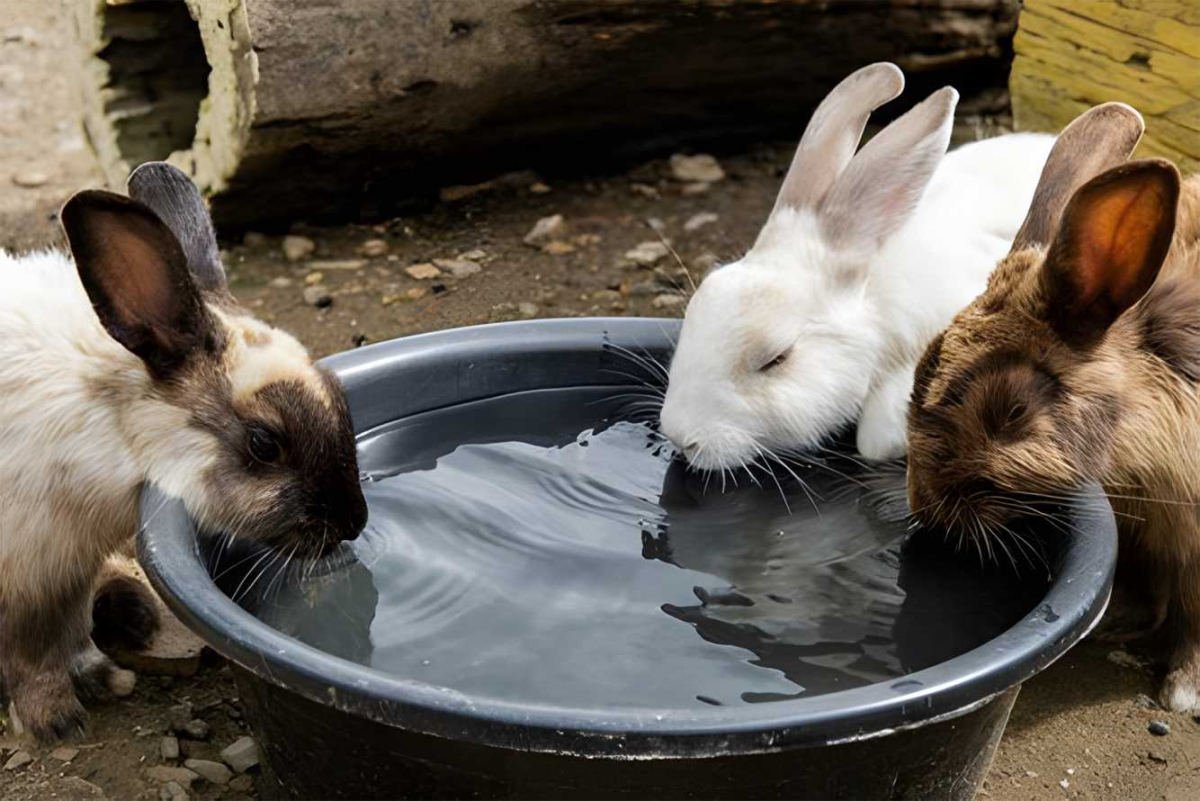How Long Can Rabbits Go Without Water?
Rabbits are adorable and popular pets that require proper care and attention to thrive. One essential aspect of their care is ensuring they have access to fresh water at all times. Water is crucial for a rabbit’s overall health and well-being, as it aids in digestion, helps regulate body temperature, and supports other vital bodily functions. So, how long can rabbits go without water? Let’s explore this topic further.

The Importance of Water for Rabbits
Water is a fundamental part of a rabbit’s diet and is necessary for several reasons:
- Hydration: Just like humans, rabbits need water to stay hydrated. Dehydration can lead to serious health issues, including organ failure.
- Digestion: Rabbits have a unique digestive system that requires a significant amount of water. Lack of water can result in a slowdown of the digestive process and lead to gastrointestinal stasis, a severe condition that can be fatal if left untreated.
- Thermoregulation: Rabbits regulate their body temperature through their ears, and water helps them stay cool in hot weather.
- Elimination of Toxins: Water aids in flushing out toxins and waste products from a rabbit’s body.
How Long Can a Rabbit Survive Without Water?
Rabbits are not well-suited to go without water for extended periods. In general, a rabbit can survive for approximately three to five days without water, but this can vary depending on various factors, including the rabbit’s overall health, age, and environmental conditions.
It is important to note that even though a rabbit may survive without water for a few days, it does not mean they are unaffected by it. Dehydration can have severe consequences on a rabbit’s health, and it is crucial to provide them with fresh water regularly.
Signs of Dehydration in Rabbits
Recognizing the signs of dehydration in rabbits is essential for their well-being. Some common signs include:
- Loss of Appetite: A rabbit that is not drinking enough water may also have a reduced appetite.
- Changes in Behavior: Dehydration can cause a rabbit to become lethargic, depressed, or unusually irritable.
- Decreased Urination: A rabbit that is not adequately hydrated may produce less urine or have concentrated urine.
- Dry Mouth and Nose: Dehydrated rabbits may have dry or sticky mouths and noses.
- Poor Skin Elasticity: Gently pulling on the skin near a rabbit’s shoulder blades and observing how quickly it returns to normal can indicate dehydration. If the skin takes longer to return to its original position, it may be a sign of dehydration.
If you notice any of these signs in your rabbit, it is crucial to seek veterinary attention promptly.
FAQs about Rabbits and Water
1. How often should I provide water to my rabbit?
It is recommended to provide fresh water to your rabbit at all times. Check their water supply daily and ensure it is clean and easily accessible.
2. Can rabbits drink from bowls or do they need a water bottle?
Rabbits can drink from either a bowl or a water bottle, depending on their preference. Some rabbits may prefer bowls, while others may find water bottles more convenient. It is important to ensure bowls or bottles are cleaned regularly to prevent bacteria growth.
3. Can rabbits get enough water from their diet?
While rabbits do obtain some hydration from fresh vegetables and leafy greens, it is not sufficient to meet their daily water needs. Access to fresh water is essential to ensure proper hydration.
4. What should I do if my rabbit refuses to drink water?
If your rabbit is not drinking enough water, it may be a sign of an underlying health issue. It is crucial to consult with a veterinarian to determine the cause and appropriate treatment.
In conclusion, water plays a vital role in a rabbit’s overall health and well-being. While rabbits can survive for a few days without water, it is essential to provide them with fresh water at all times to prevent dehydration and related health issues. Monitoring their water intake and recognizing signs of dehydration is crucial in ensuring the health and happiness of your furry friend.
Related Articles…
Copyright Notice:
All images featured on this site are sourced from the internet, copyrights belong to respective owners. Should you own any image and require it to be removed, please contact us.